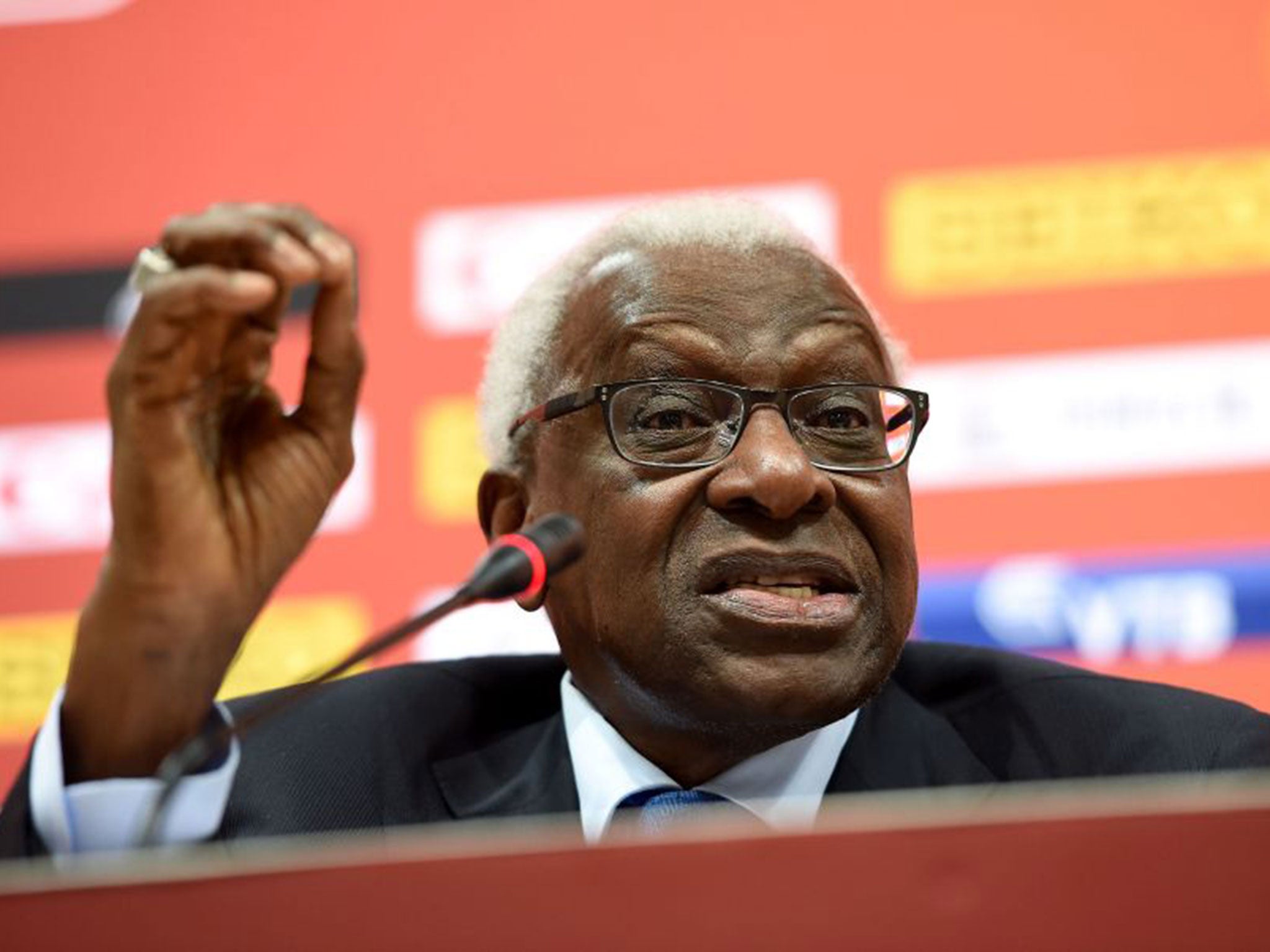Athletics doping crisis: How Lamine Diack ‘enabled conspiracy and corruption’ at IAAF
Wada commission report says officials should have done more to speak up

Your support helps us to tell the story
From reproductive rights to climate change to Big Tech, The Independent is on the ground when the story is developing. Whether it's investigating the financials of Elon Musk's pro-Trump PAC or producing our latest documentary, 'The A Word', which shines a light on the American women fighting for reproductive rights, we know how important it is to parse out the facts from the messaging.
At such a critical moment in US history, we need reporters on the ground. Your donation allows us to keep sending journalists to speak to both sides of the story.
The Independent is trusted by Americans across the entire political spectrum. And unlike many other quality news outlets, we choose not to lock Americans out of our reporting and analysis with paywalls. We believe quality journalism should be available to everyone, paid for by those who can afford it.
Your support makes all the difference.Q. What was uncovered by the second Wada independent commission report and was it more damaging than the first?
A. It lacked the explosiveness of the first, partly as much of what was in the second report had already been aired in the ensuing weeks after the first. But the crux of it was that the IAAF should have done more to speak up about the corruption ongoing at the head of the organisation.
Q. What exactly was the commission investigating?
A. The report was split into three parts: the first on the now criminal investigation into Lamine Diack and other former leading IAAF officials, the second into an email exchange between Nick Davies, until he stepped down as Sebastian Coe’s right-hand man, and Papa Massata Diack, and the third and final part on the leaked blood database that hit the headlines in The Sunday Times during the summer.
Q. And what was the outcome?
A. The first part is now in the hands of the French financial authorities, whose prosecutor Éliane Houlette gave a brief update of the case. But the commission concluded Diack was “responsible for organising and enabling the conspiracy and corruption that took place in the IAAF” with the help of an “inner circle”. As for Davies, he comes out of the report badly, denying any knowledge of the Russian doping allegations referenced in his email. The third part of the report effectively disagrees with suggestions from The Sunday Times “that sanctions could have been obtained on the basis of the values reported in the IAAF database provided to them for analysis”.
Q. Does that effectively mean Paula Radcliffe, whose blood data was among those leaked, is in the clear?
A. In effect, yes, the commission having cleared the British marathon runner of any wrongdoing with accusations that the conclusions were drawn because of incomplete data. Radcliffe herself has commented: “The findings that the independent commission gave were that there was no substance to the very damaging allegations made…”
Q. What does it mean for the IAAF president Sebastian Coe?
A. Effectively, Coe’s organisation has had its knuckles rapped and been told to never let such things happen again, while Coe bemusingly has come out of the whole thing quite well with Dick Pound saying he is the right, and the only man, for the job.
Q. What does it mean for Russia. Will they be back for the Olympics in Rio this summer?
A. That remains unclear. Pound was repeatedly pressed on the issue and said simply: “Russia have been caught with their pants down and now they have to deal with it. If they do, they will be back, they will be in Rio. If they don’t, they won’t. It’s that simple.”
Q. Are there still more bad headlines to come?
A. In this sorry mess, undoubtedly. One aspect that was a mere footnote of the 89-page report were questions raised about the bidding process for the 2020 Olympics. The report’s three authors also raised questions about the legality of the bidding processes for athletics World Championships from 2009 up to 2021.
Join our commenting forum
Join thought-provoking conversations, follow other Independent readers and see their replies
Comments